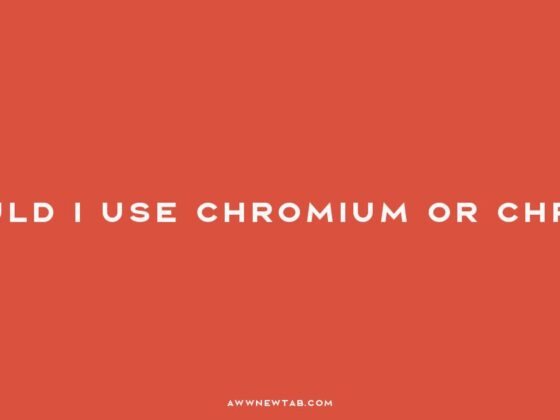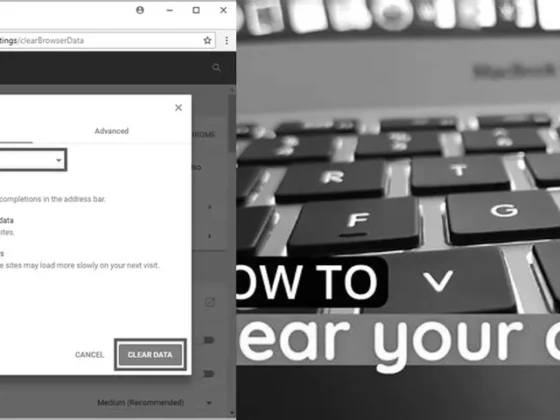Is A Chromebook Ios Or Android: Is a Chromebook iOS or Android? This question has been puzzling tech enthusiasts for quite some time. If you’re someone who loves the simplicity of iOS or the flexibility of Android, you might be wondering where a Chromebook fits into the picture. Well, fear not, because in this article, we’ll unravel the mysteries of the Chromebook ecosystem and explore how it differs from iOS and Android. Whether you’re a student, professional, or simply someone looking for a new laptop, this guide will help you decide if a Chromebook is the right choice for you. So, let’s dive in and discover the fascinating world of Chromebooks!
Understanding the Chromebook Ecosystem
When exploring the tech market for a new device, it’s important to understand the operating system that powers it. This is the backbone of your user experience and dictates what you can do with the device. Chromebooks are unique in this landscape, offering a different approach from the traditional platforms many are used to.
What Powers a Chromebook?
At the heart of every Chromebook is ChromeOS, an operating system based on the Google Chrome web browser. This OS is different from other popular operating systems like Microsoft Windows or Apple’s macOS and iOS. ChromeOS is built to be lightweight, fast, and secure, with a user interface similar to the Chrome browser.
Google Services Integration
Google services are deeply integrated into ChromeOS, making for a seamless experience for users invested in Google’s ecosystem. This means that apps like Gmail, Google Drive, and Google Calendar are tightly woven into the fabric of the Chromebook’s functionality.
Running Android Apps on ChromeOS
One of the most significant features of ChromeOS is its ability to run Android apps. This is made possible through the Google Play app store, which is available on most Chromebooks. This compatibility bridges the gap between ChromeOS and Android, allowing users to enjoy a vast library of apps that were traditionally exclusive to Android smartphones and tablets.
Chromebook vs. iOS: Understanding the Differences
It’s not uncommon for people to confuse ChromeOS with iOS, as both are sleek, user-friendly operating systems. However, they are distinct in their design, functionality, and target devices.
ChromeOS: Designed for the Web
ChromeOS is a web-centric operating system that excels at cloud-based tasks. It’s designed to work primarily with web applications and services, which makes it ideal for users who are always connected to the internet. Its sandboxing approach isolates processes, enhancing security and making it difficult for malware to cause harm.
iOS: A Mobile Powerhouse
iOS, on the other hand, is Apple’s operating system for iPhone and iPad devices. It’s renowned for its robust app ecosystem, strong security features, and intuitive user interface. iOS is optimized for touch gestures and mobile use, providing a rich experience for smartphone users. It also boasts a strong app sandboxing and secure boot process, with regular updates to keep devices safe.
Is ChromeOS Similar to Android?
While ChromeOS and Android are separate entities, they share a common lineage as both are developed by Google. This familial relationship is evident in their ability to run the same Android apps, but there are notable differences in their primary functions and user interfaces.
ChromeOS: A Laptop Experience
ChromeOS is tailored for laptops and desktops. It offers a keyboard and mouse-oriented interface, with the option to use touch where available on certain devices. Chromebooks typically offer more extensive computing capabilities compared to tablets, including larger screens and hardware that is more akin to traditional laptops.
Android: Designed for Touch
Android is designed primarily for touch-based devices like smartphones and tablets. It offers a mobile-centric user experience with a focus on apps that are optimized for smaller screens and mobile processors.
How Chromebooks Extend Laptop Functionality with Android Apps
The ability to run Android apps on Chromebooks significantly expands the functionality of these devices. Users can access a plethora of apps on the Google Play Store that are not available as web applications, from games to productivity tools. This feature makes Chromebooks more versatile, as they can function both as traditional laptops and as Android app-capable devices.
Productivity and Entertainment
With access to Android apps, Chromebook users can enjoy a range of productivity tools like Microsoft Office or Adobe apps, alongside entertainment options such as mobile games and streaming services. This dual functionality is a significant selling point for Chromebooks, offering the best of both web and mobile app worlds.
Chromebooks: An Evolving Platform
Chromebooks continue to evolve, incorporating features that cater to the needs of a diverse user base. From students to professionals, the flexibility of ChromeOS, coupled with access to Android apps, makes Chromebooks a compelling choice for those seeking a device that balances performance with simplicity.
Security and Simplicity
ChromeOS embodies Google’s commitment to security and simplicity. Regular updates and a streamlined interface mean that users can work efficiently and securely. The sandboxing technology, automatic updates, and cloud-based management are just a few aspects that contribute to the robust security posture of Chromebooks.
Cloud Storage and Accessibility
Chromebooks are designed with cloud storage in mind, ensuring that users can access their data from anywhere, on any device with internet connectivity. This accessibility is a cornerstone of the Chromebook philosophy, aligning perfectly with the demands of the modern, mobile workforce.
Final Thoughts: Is a Chromebook Right for You?
When deciding whether a Chromebook is the right choice, it’s essential to consider your needs. If you are deeply entrenched in the Google ecosystem, require a device for web-based tasks, and appreciate the ability to use Android apps, a Chromebook is an excellent choice. On the other hand, if you’re looking for the full iOS experience or require software that’s only available on Windows or macOS, then a Chromebook might not be the best fit.
In conclusion, a Chromebook is neither iOS nor Android; it’s a unique platform that offers the best of both worlds for certain users. With its ease of use, security, and the versatility provided by Android app compatibility, Chromebooks carve out their niche in the computing world, offering a compelling alternative to traditional laptops and tablets.
Remember, the right device for you is one that fits seamlessly into your lifestyle and enhances your productivity and enjoyment. Evaluate your options, consider your use cases, and choose wisely!
FAQ & Related Questions about Chromebooks
Q: Is a Chromebook iOS or Android?
A: A Chromebook is neither iOS nor Android. It runs Google’s Chrome operating system (OS), which is different from both iOS and Android.
Q: Can a Chromebook use Android?
A: Yes, a Chromebook can use Android. Most Chromebooks have the ability to run Android apps, which expands their functionality beyond that of a traditional laptop.
Q: Is ChromeOS the same as iOS?
A: No, Chrome OS and iOS are different operating systems. Chrome OS is designed for web-based applications and cloud computing, while iOS is known for its app sandboxing and security features.
Q: Does a Chromebook run Windows or Android?
A: Most Chromebook models are not designed to run Windows. They are specifically built to run ChromeOS, which offers benefits such as longer battery life, affordability, manageability, and inherent security advantages.
Q: Is a Chromebook an iOS?
A: No, a Chromebook is not an iOS device. Chromebooks are manufactured by Google and run ChromeOS, while iOS devices are produced by Apple and run the iOS operating system.


